“Clean eating!” “Detox!” “Get the body of your dreams in only five minutes a day!”
Sound familiar?
Yep, that’s health marketing in action… and it’s all bullshit.
The truth is, marketing is meant to do one thing: sell products and services. Period. The business is money and the storefront is health, fitness, nutrition, wellness, or whatever.
But sometimes the truth gets in the way of a good sales pitch, so marketers craft health claims full of word salad, ambiguity, and nuance that may be technically “true,” but are often deceptive or downright false.
In fact, if the so-called “health industry” had to be 100% truthful and transparent in its marketing claims, it simply wouldn’t be effective in peddling its wares. The fact that the industry can’t or won’t be honest in most cases only underscores a dubious intent.
Sure, I understand there are genuinely good people out there with good intentions unwittingly promoting pseudoscience (particularly those selling multi-level marketing nutrition products). But they’re usually just inadvertent pawns parroting out their pre-packaged marketing script.
With this in mind, I pulled together a list of some of the most pernicious and pervasive bullshit health marketing claims you’re likely to encounter.
Each one is broken down as follows:
- Claim: The word or phrase used in health marketing messages.
- Translation: What marketers would really say if they had to be brutally honest with the public.
- Reality check: Some common sense advice which explains why you shouldn’t trust the claim.
So next time you’re browsing the internet or social media and you come across these red flags, you’ll know to hold onto your wallet.
Clinically proven!

Translation: Not clinically proven to do anything. We lifted a bunch of statistics from legitimate research articles and then misinterpreted and slanted the findings to meet our marketing objectives. We know you’re scientifically illiterate so won’t be able to fact check us.
Reality check: Buyer beware. The phrase “clinically proven” is not a regulated term and can pretty much mean anything to anyone. It is not uncommon for health marketers to take legitimate research published in medical journals out of context and rewrite it to fit their marketing objectives. In the case of Laminine, the company provides a list of peer-reviewed journal articles that, in actual fact, have absolutely nothing whatsoever to do with their product (which has not been tested against the claims they make).
Get insert goal in just five minutes a day!
Translation: We know you won’t get jack shit in “five minutes a day,” and certainly not six-pack abs. We know you’re lazy and desperate for a quick and easy fix. And if you’re gullible enough to fall for it, then you deserve to lose your money.
Reality check: “Five minutes a day” is an old favourite of virtually every infomercial. This claim is designed to hammer away on all your pain points. Marketers know exercise and changing eating habits are difficult, so they pander to lazy human nature. It’s a formulaic script that marketers recycle over and over with every new product. Check out my reviews on the Ab Circle Pro, Ab Wave, Wonder Core, and SpinGym and you’ll see the commonalities.
No effort required! Quick and easy!
Translation: Regular, repeated, disciplined effort required. We know that you can’t do nothing and get the body of your dreams, but it sounds believable when paired up with a svelte fitness model who’s never actually used our product.
Reality check: There are no quick-fixes on the path to health. If it was easy to get fit and healthy, we wouldn’t have a global obesity problem. Everyone is looking for the golden unicorn of health, but the reality is that it takes hard work and discipline to make lasting healthy habit changes.
Detox, cellular detox, detoxify, removes toxins
Translation: We’re just bullshitting you into thinking your body is polluted with toxins (which we can’t name because they don’t exist) and then conveniently selling you a “detox” tea loaded with laxatives and diuretics or a potentially dangerous “colonic.” We’ve paid off armies of plastic duck-faced Instagram “influencers” to parrot our marketing messages to help lower your skepticism. Product is effective at removing cash from your bank account.
Reality check: “Detox” is a medical term hijacked by health marketers to scare people into buying their products. In an article on Science-Based Medicine, Scott Gavura eloquently provides a real definition for detox:
“Detox” is a legitimate medical term that has been co-opted to sell useless products and services. It is a fake treatment for a fake condition. Real detoxification isn’t ordered from a menu at a juice bar, or assembled from supplies in your pantry. Real detoxification is provided in hospitals under life-threatening circumstances — usually when there are dangerous levels of drugs, alcohol, or other poisons in the body. Drugs used for real detoxification are not ingredients in a smoothie.
In virtually every case, the companies never specifically name any toxins. Provided you have a working liver and kidneys, then you’ve got all the natural detox fire power you need. And if you truly do have toxins in you that need removing, then you’re going to need a heck of a lot more than a “detox” tea.
Cleanse or The Insert random food Cleanse
Translation: We want you to think that life is a filthy cesspool. Then we’ll sell you a product to “cleanse” you but, in actual fact, just cleanses your wallet.
Reality check: Proponents of “cleansing” diets or pills fail to advise which toxins/nasties are cleansed from the body after undertaking the diet. These diets are often extreme. Think no wheat, caffeine, sugar, dairy, alcohol, meat etc. There is no evidence that you need to follow such a diet to improve your health. By all means, eat mostly whole foods and reduce your intake of booze, added sugar, and refined grains if you want to improve your health. But there’s no need to “cleanse” your system to achieve good health. The only thing you’ll cleanse on a “cleanse” diet is your… bank balance.
Contributed by Joel Feren, Accredited Practising Dietitian
Wellness
Translation: We’ll claim our “wellness” product or service is designed to gently and easily “rebalance your body” and “bring you into alignment” just as Mother Nature intended. We’ll fool you into thinking it’s “working” by making nebulous marketing claims that are ill-defined and difficult to prove.
Reality check: “Wellness” is a blanket term that, much like “clinically proven,” doesn’t really mean anything. It has no official definition and can mean many different things to different people. When you come across this term, ask the person selling the “wellness” product or service to be specific about what benefits can be expected and what research substantiates those claims.
Contributed by Joe Cannon, MS, CSCS, Strength and Conditioning Specialist
Optimal
Translation: Something to lull you into thinking our product or service will help you reach some sort of ambiguously defined “optimal” level of health.
Reality check: For a person with a case of the daily blahs, taking a miracle supplement sold on the promise of delivering “optimal” health can be very appealing. The word “optimal” within a health marketing context is generally meaningless and subjectively defined. Optimal what? Optimal compared to what? Optimal according to whom? Optimal by what/whose standards?
All natural
Translation: We want you to think that because it’s “natural” it must be safer, healthier, gentler, or whatever other adjective gives you that warm and fuzzy feeling and makes you loosen your grip on your wallet.
Reality check: Natural does not always mean safer or better than a “non-natural” counterpart. In fact, sometimes natural remedies like herbal supplements can actually be more dangerous and unpredictable than a supplement with isolated ingredients.
For example, ma huang is an herbal supplement that contains ephedra alkaloids – kinda like herbal methamphetamine. In the 1990s, it was aggressively marketed to consumers with claims of being “safe and all natural” but when the dead bodies started stacking up, the feds intervened and banned it.
Thanks to the 1994 Dietary Supplement Health and Education Act, a law sponsored by the supplement industry, supplements are not regulated and manufacturers do not have to prove that the product is safe, effective, pure, or that the potency listed on the label is what’s in the product – as long as it’s labeled a “supplement.”
In the case of ephedra, overweight people with cardiovascular risk factors were taking the product and, in some cases, getting batches with very LARGE concentrations of active ephedra alkaloids. This sent their heart rates and blood pressures skyrocketing which precipitated heart attacks and strokes.
Bottom line: “all natural” in the context of health marketing should be taken with a grain of salt and put into context. There are lots of “natural” substances out there, like snake venom, arsenic, and anthrax, but that doesn’t mean you want them in your body.
Alkaline foods, water, diet
Translation: We know you know nothing about basic human physiology. We’ll bullshit you into giving up the burgers and chips in exchange for a healthier diet which will make you lose weight and feel better. You’ll then erroneously ascribe all benefits to the diet’s alkalinity. We’ve also bullshitted enough ignorant Hollywood actors and Instagram influencers into promoting it in order to give it a veil of legitimacy.
Reality check: Your body’s blood pH hovers within a very tight range (around 7.35 to 7.45). If it drifts too far outside this range you’ll end up sick or possibly dead (think diabetic ketoacidosis). Your stomach’s pH is extremely acidic, around 3.5 or below, which helps you break down food (which is neutralised by bicarbonate from your pancreas). And your urine’s pH will vary a bit depending on what you eat.
Proponents of the alkaline theory of health claim that what you eat affects your body’s pH and can either precipitate or protect against disease. Truth is, what you eat doesn’t really affect your blood pH at all.
Fruits and vegetables are cornerstones of an alkaline diet, and improvements in body weight and health are more to do with better nutrition than the diet’s pH levels.
Adrenal fatigue
Translation: Your adrenal glands are working just fine. But if we convince you they’re “fatigued” then you’re more likely to buy our supplements and tests.
Reality check: The adrenal fatigue myth has been repeated so many times over the years that it’s almost accepted as universally true. But the problem with manufactured illnesses like adrenal fatigue is that if something truly IS wrong, then you may delay or forego proper diagnosis and treatment for very real illnesses like cancer, heart disease, or depression.
Results from a comprehensive 2016 systematic review found that many of the studies conducted on adrenal fatigue as a clinical entity were fraught with conflicting results due to methodological errors and inappropriate or invalid conclusions based on the data presented. The authors concluded that there is no legitimate scientific substantiation of “adrenal fatigue.”
Yes, you might be overworked, stressed out, eating poorly, not exercising, and mainlining a gallon of coffee every day but, chances are, there’s nothing wrong with your adrenal glands. The general recommendations for “fixing” adrenal fatigue are to manage stress, find a work-life balance, eat better, exercise, and cut out all the stimulants – all of which is good advice for anyone whether you have “adrenal fatigue” or not.
Leaky gut syndrome
Translation: Your gut is just fine, but that won’t stop us from selling you our sham tests, fad diets, or supplements to correct what isn’t broken in the first place.
Reality check: There is no quality scientific evidence to support the existence of so-called leaky gut syndrome. According to the Cleveland Clinic, promoters of the leaky gut syndrome claim that “toxins” and bacteria enter your bloodstream through “leaks” in your intestines which supposedly cause a range of symptoms like bloating, gas, cramps, inflammatory bowel disease (IBD), as well as fatigue, food sensitivities, joint pain, moodiness, irritability, sleeplessness, autism, and skin problems like eczema and psoriasis.
The problem with a “diagnosis” of leaky gut syndrome is that the symptoms are so disparate and wide-ranging that they could apply to virtually anything. If you do have a serious health issue, then it could plausibly be worsened by delaying proper diagnosis and treatment in favour of an unproven “treatment” for a “disease” that doesn’t exist in the first place. If you’re having legitimate problems with your gut, then your first port of call should be your doctor.
Heal your gut
Translation: First, we’ll convince you there’s something wrong with your gut (“leaky gut syndrome” oh my!) and then we’ll sell you something to “heal your gut.”
Reality check: “This implies that anyone with the vaguest gut symptom actually has gut damage and that is just not the case. The benefits claimed by those who follow so-called “gut healing” regimes are based on anecdotal evidence at best. Bone broth is a great example and could even be harmful – there are concerns about potential lead contamination in bone broth. Plus that, don’t pay $30 a packet when you could just make what most of us call “stock” at home and add veggies and legumes – these will do more for your gut health than bone broth!”
Contributed by Dr Joanna McMillan, Accredited Practising Dietitian
Secrets or cures “they” don’t want you to know
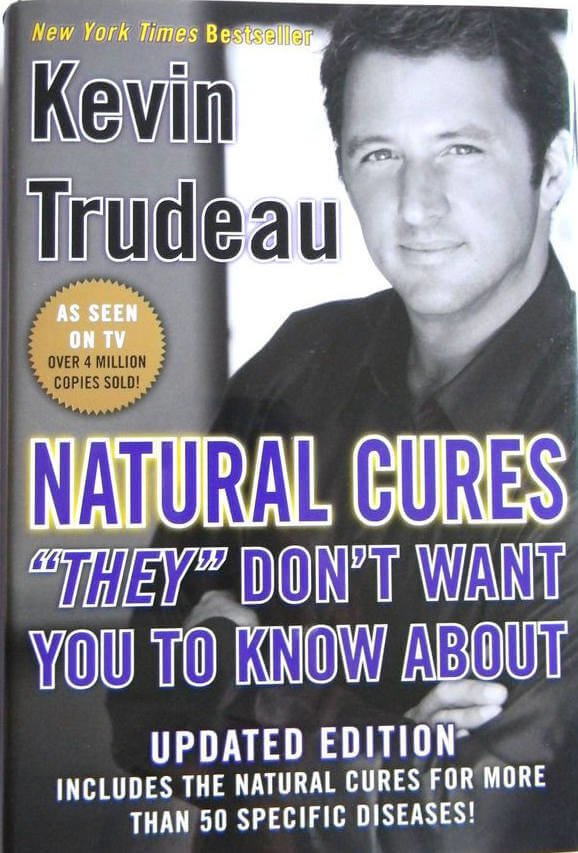
Translation: “They” don’t have any secrets, but my marketing secret is I’m telling you there’s a secret “they” don’t want you to know so you’ll buy my bullshit diet book full of fake cures.
Reality check: More like bullshit marketing fluff that marketers don’t want you to know. This sort of faux exclusivity gimmick was popularised by the self-promotional king of psychopathic narcissism himself, Kevin Trudeau, a convicted TV conman who sold a series of products which touted “weight loss cures” and “natural cures” that “they” (whoever “they” are) don’t want you to know. The truth is, Trudeau has no health qualifications whatsoever, but he does boast a very long history of deception and fraud dating back to 1984. True to his nature, he refused to pay $40 million in fines and violated numerous court orders not to make false claims. In 2014, Trudeau was sentenced to 10 years in federal prison.
Big pharma conspiracy, shills!
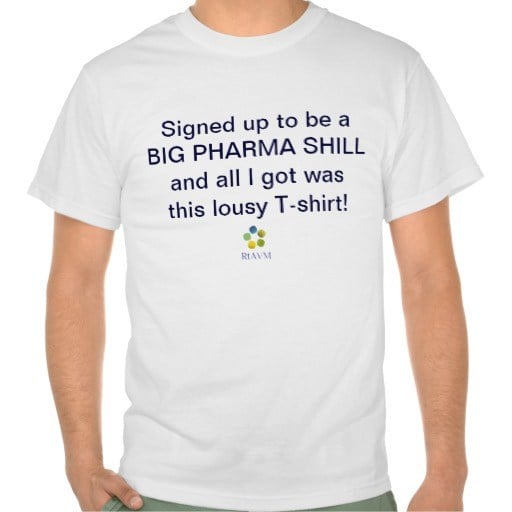
Translation: We fabricate “enemies” and push the “us vs. them” narrative to deflect attention from the fact that our supplements are unregulated and do not have to be proven safe, effective, pure, or that the potency listed on the label is what’s in the product.
Reality check: Health marketers have been claiming with no proof that there is a secret “big pharma” cabal run by “shills” trying to keep people sick for profit (i.e., “they” have the cure for cancer but are withholding it for profit).
Let’s be clear, “big pharma” certainly isn’t run by boy scouts, but to arbitrarily demonise the entire pharmaceutical industry and claim “they” are out to keep people sick is naive and misinformed. The pharmaceutical industry is subject to an immense amount of regulation and scrutiny, unlike dietary supplements which are virtually unregulated thanks to the 1994 Dietary Supplement Health and Education Act discussed earlier in this article.
The Insert random food name Diet
Translation: We got drunk, picked random food names out of a hat, and wrote up the Taco Cleanse Diet on the back of a napkin. It was an easy sell because, you know, people are stupid and pretty much believe anything on the internet that looks “science-y.”
Reality check: The scientific jury has met and passed judgement on of all these diets and the verdict is damming. There is no magical, fat-burning, pixie dust, next-level metabolic pathway to be had on any of them – they all work by causing an energy deficit be restricting certain foods or macronutrients with carbohydrates the perennial favourite to be hating on. The biggest predictor of maintaining weight loss on any approach is sticking to whatever diet you can sustain and getting ongoing help and support. Few people can do this no matter what the approach they use which is why there are always new diets coming out to rehash the same principle. So instead focus on eating better to start with – mostly plants, not too much sugar, and food that you prepare yourself.
Contributed by Dr Tim Crowe, Nutrition Scientist
Cures cancer
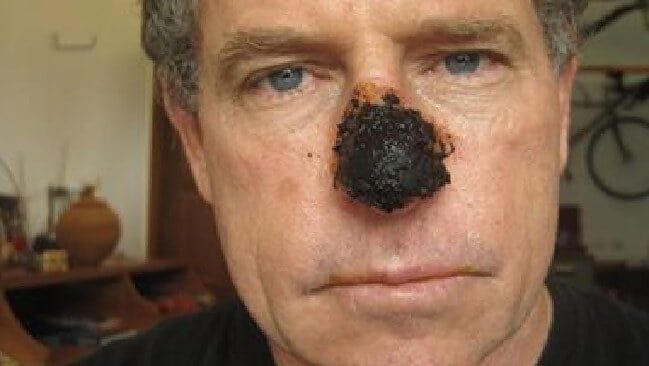
Translation: Doesn’t cure cancer. Just empties your bank accounts and retirement funds and leads to certain death for many cancers which can be treated with conventional medicine. If it did work, cancer would have been eradicated by now (and you certainly wouldn’t have learned about it from a YouTube video).
Reality check: Fake cancer cures have been around for a long time, but the problem is that many “cures” simply do not work. They do, however, cause people to delay getting a timely diagnosis or stop treatment altogether which can lead to progression of the disease.
A common “cancer cure” is black salve which is popular on social media and online message boards, but usually just leaves people permanently disfigured and does not halt progression of cancer.
Weight loss shakes
Translation: Starve yourself and then drink one of our chalky low calorie shakes. You will lose weight because, well, that’s what happens when you starve yourself.
Reality check: “I was quietly hoping the shake craze would have died a slow death some years ago. However, weight loss shakes appear to have stood the test of time. Meal replacement shakes do not teach you what to eat in the long term and they certainly don’t help you foster a healthy relationship with food. They are just another short term fix. And a pretty tasteless and boring one at that!”
Contributed by Joel Feren, Accredited Practising Dietitian
“Good” foods vs “bad” foods or “guilt-free”
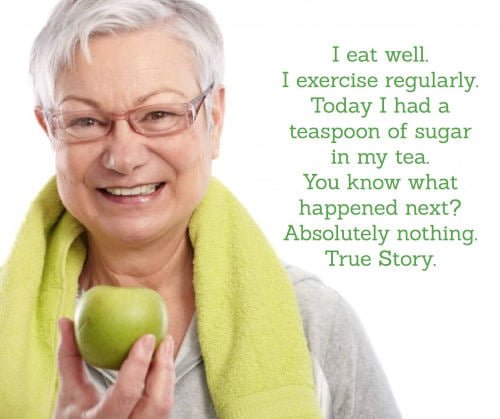
Translation: We draw lines in the sand, label everything as “good” or “bad,” and then guilt you into taking a certain action (i.e., buy our diet, click on our article, watch our video).
Reality check: Divide and conquer is a political strategy that has been used for millennia. By creating a perceived, albeit false, dichotomy of good vs. bad, right vs. wrong, and us vs. them, people will automatically judge themselves as being “good” or “bad” and then look to the authority figure for the “solution.”
Marketers have leveraged this tactic to great advantage but, in actual fact, it’s all bullshit. The mindset of “good” vs. “bad” can create a toxic relationship with food, exercise, or any other health parameter in some people. By this logic, living a healthy lifestyle is a complete failure if you eat a “bad” food or do a “wrong” exercise.
A more sensible approach is to live a balanced lifestyle that includes lots of fruits, veggies, and whole grains, physical activity, reduced stress, adequate sleep, moderate alcohol intake, and no smoking (there is no safe level of smoking). If you happen to eat a so-called “bad” treat like birthday cake or ice cream, you know what will happen to you? Absolutely nothing. It just makes you a normal person, not a terrible person.
Clean eating
Translation: If we can bullshit you into thinking your diet is “dirty” then we can sell you our fad diet or “clean eating challenge.”
Reality check: Your eating was never “dirty” in the first place. Sure, it’s good practice to wash your fruits and veggies before eating them, but that’s not what they mean by “clean eating.” If you’re starving yourself on an unsustainable diet of parsley and alfalfa sprouts to meet an unattainable standard of nutrition, then you’re setting yourself up for a fall.
Accredited Practising Dietitian Dr Joanna McMillan warns, “So-called “clean eating” is one of my most hated phrases. It hooks into our obsession with sin and morals – the implication is that I am pure and good if I eat a certain way, or I am bad and naughty if I eat forbidden foods (dirty eating!)”
Fat-free
Translation: Let’s reformulate our product and replace fat with loads of refined sugar. Well make you think it’s healthier and that if it doesn’t CONTAIN fat, then you can’t GET fat.
Reality check: Fat-free does not mean it can’t make you fat. If you eat enough of anything, it can still make you fat.
And don’t go falling for marketing spin. Lollies are 99% fat-free and that’s because they are 99% sugar. It’s important to be a savvy shopper and know how to make sense of health claims and nutrition panels. Remember that knowledge is power.
Contributed by Joel Feren, Accredited Practising Dietitian
Superfoods
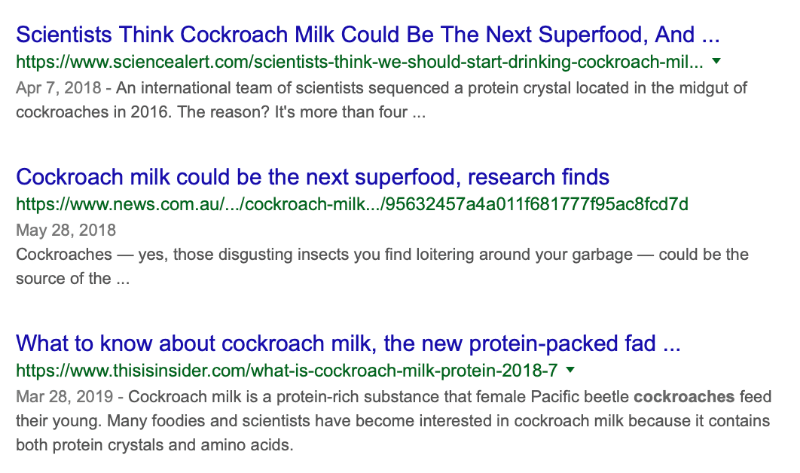
Translation: Nope, just another obscure or difficult to pronounce food upon which we’ve bestowed special super powers and anointed with a clickbait headline.
Reality check: There are no “superfoods” just super marketing. Do you ever notice that there’s a new “superfood” every year? Consumeristic societies are driven by “new” things, so what better way to sex up food than to call it a “superfood.”
Marketers zero in on something like green tea, quinoa, krill oil, or açai and highlight a single nutrient (i.e., a specific antioxidant) and then blow it out of proportion, along with the price tag. Then they do media appearances on the Dr Oz show (King Purveyor of Superfoods) or feed marketing talking points to science-ignorant women’s magazines and websites (fake news!) who publish flattering articles about the said superfood. If you repeat a lie often enough, it becomes “truth.”
For example, cockroach milk ascended to “superfood” status last year when a bunch of overzealous news outlets misinterpreted the findings of a legitimate research article on the nutritive value of cockroach milk. Nowhere in the research article was there mention of cockroach milk for human consumption. But that didn’t stop other websites from cannibalising and repurposing the content with clickbait headlines.
Bottom line: the fact is, we don’t (and can’t) survive on a single food. Our bodies rely on a variety of foods to maintain good health.
If It Fits Your Macros (IIFYM)
Translation: It doesn’t matter if it “fits your macros” but at least it sounds “science-y.”
Reality check: “People love something that sounds as if it is highly scientific, when in fact there is no such thing as a perfect macronutrient distribution. In fact, it’s pretty impossible to hit a perfect percentage of each anyway and this kind of counting is not only pretty boring, it also has the potential to lead to an unhealthy obsession with food. There are ranges that each macronutrient (protein, carbohydrate and fat) can contribute to your total energy intake.”
Contributed by Dr Joanna McMillan, Accredited Practising Dietitian
Activated (i.e., activated almonds)
Translation:It’s the same old food, but I’ve bullshitted you into thinking that “activation” gives it superfood status so I can charge you a premium. Here, click this link and buy it from my website.
Reality check: You’d have to be an activated nutter to activate your nuts. Or be willing to pay twice as much for almonds. There’s no evidence to show that you have to soak your nuts to improve their nutritional content. They are fine (and delicious) just the way they are.”
Contributed by Joel Feren, Accredited Practising Dietitian
“Miracle” or “magical”
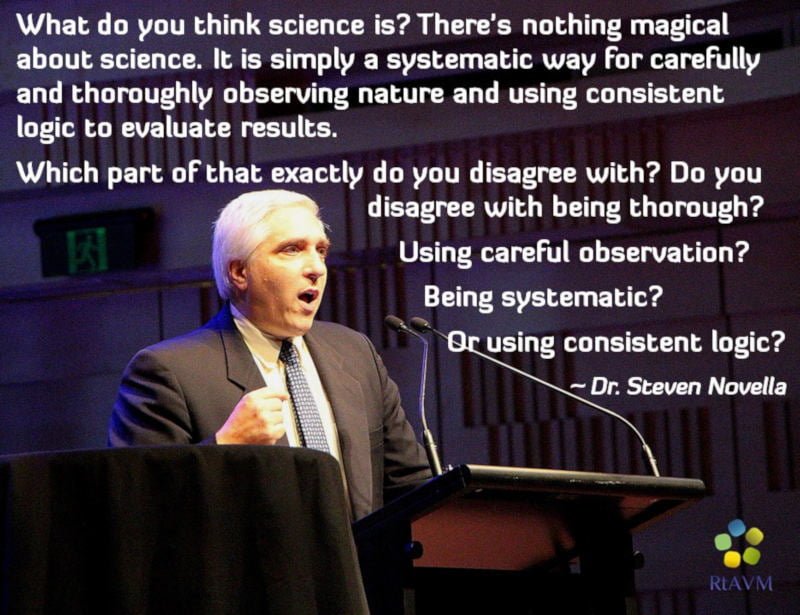
Translation: Code word for bullshit. We know you’re holding out hope for that “miracle” weight loss pill and, if you’re willing to pay for it, then we’re willing to sell it to you.
Reality check: Magical thinking has done the bidding of quacks, conmen and woo pushers for centuries. High profile snake oil salesmen like Bullshit Artist Extraordinaire Dr Oz have consistently used their public pulpit to promote “miracle” cures and treatments for different conditions.
Several years ago, Dr Oz was hauled before a United States Senate panel on health and science and was asked if he believed in “miracle pills.” He replied that he didn’t, despite the fact that he sells a health plan called “The 7-Day Miracle Plan.”
“There’s not a pill that’s going to help you long term lose weight without diet and exercise,”Oz said.
Um, yeah, but that’s not what you say to your legions of viewers. I rest my case.
Works on a cellular level
Translation: We’ll claim “clinical studies” confirm the unique ingredients penetrate your cells fast to provide maximum benefits. Even though we know most of the evidence for this stuff is based on mouse studies or isolated cells in petri dishes, we just invent catchy phrasing to slip past your boloney detector.
Reality check: How do you KNOW it’s working at the cellular level? Doesn’t everything work at the cellular level? Food, water, etc?
This is a common tactic used by health marketers to leverage on normal bodily functions and implant the romanticised idea that a single nutrient (or group of nutrients) will supercharge your cells. But the truth is, the human body relies on a variety of nutrients for normal nutrition.
Contributed by Joe Cannon, MS, CSCS, Strength and Conditioning Specialist
Biohacking
Translation: We know “biohacking” is a popular catch phrase, so we’ll claim our “unique and patented blend of ingredients” is “clinically proven” to provide maximum benefit for [insert desired health benefit].
Reality check: Biohacking is a popular marketing term, particularly in the biohacking bro science climate of Silicon Valley. In reality, biohacking is just another invented phrase used to sell dietary supplements. The not-so-subtle art of hyperbole is used to maximum advantage in health marketing and, as long as there are people desperate to believe in “biohacking” fairy dust, there will be marketers ready to sell the “solution.
Contributed by Joe Cannon, MS, CSCS, Strength and Conditioning Specialist
Chemical-free
Translation: We know you’re terrified of “chemicals”, so we throw “chemical-free” in our marketing spin to bullshit you into thinking our product is “pure” and “natural” and, therefore, better, safer, or whatever.
Reality check: There’s no such thing as “chemical-free.” If it’s on the periodic table of elements (which pretty much accounts for everything) then it isn’t chemical-free.
Health marketing is well-known for playing the “chemical-free” card to scare people into buying products that are no different or better than a similar product that contains “chemicals.”
People have an irrational fear of all things “chemical.” For example, dihydrogen monoxide has a scary chemical-sounding name…but at the end of the day, it’s still just plain old water. Acetic acid is commonly referred to as vinegar. And ascorbic acid is commonly known as vitamin C.
Boosts/increases/unlocks/supports your insert bodily function
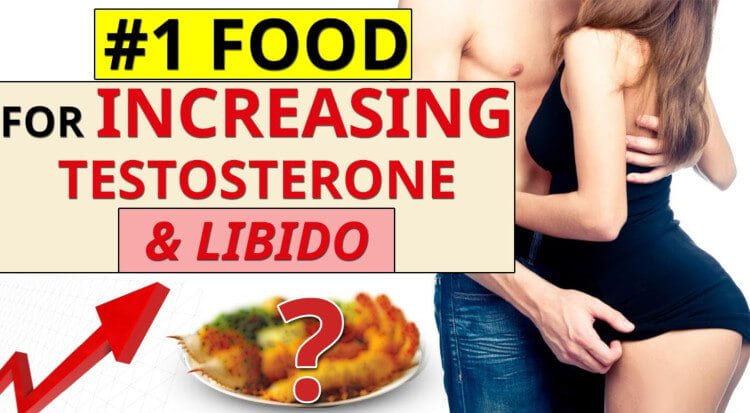
Translation: Doesn’t boost, increase, unlock, or support anything. We’ll just take some clinical research findings out of context and bend them to fit our marketing objectives.
Reality check: You should view sensationalised marketing claims with skepticism, especially when they’re accompanied by stock images of sexy models who’ve likely never even used the product. You also need to evaluate each claim against the original research from which those claims were derived.
For example, in 1997, pyruvate was being aggressively marketed as a miracle supplement that could “significantly” increase fat and weight loss, improve exercise endurance capacity, and reduce cholesterol. In response, I authored a comprehensive review in the International Journal of Sports Nutrition which categorically addressed and debunked each marketing claim against the original research. The marketers had lifted every single claim out of context and were using animal and Petri dish studies to make sweeping claims of efficacy. Also, the extremely large doses of pyruvate used in the studies didn’t really compare to the extremely small, benign doses being marketed and sold to consumers (in other words, there was pretty much nothing in the supplements). Not surprisingly, follow up studies found that small, more realistic doses of pyruvate have no effect on performance or weight loss.
“This one weird trick….”

Translation: There is no “one weird trick,” but we know you’re curious and you fear missing out if you don’t click on it.
Reality check: Seriously? If you’re clicking on ads like these, then maybe you need to lose a few bucks to learn a lesson.
These “one weird trick” types of clickbait ads have been around for about a decade and attempt to capitalise on your natural curiosity and desire to know “secret” information. The formula used in the ads was first applied to weight loss products but has since been applied to everything from diabetes to hair loss to penis enlargement.
“I tried XYZ and then THIS happened!”
Translation: Abso-f*cking-lutely nothing happened, except that you were duped into clicking a stupid clickbait headline.
Reality check: Similar to the “one weird trick” tactic, this one also taps into your curious nature and fear of missing out. Aside from the fact that clickbait is often used to sell products and services of dubious repute, it’s also associated with malware infections that can destroy your computer or put you at risk for phishing scams.
Bottom line: don’t click any clickbait headlines – ever. Do so at your own risk.
Enemas, colonic cleansing
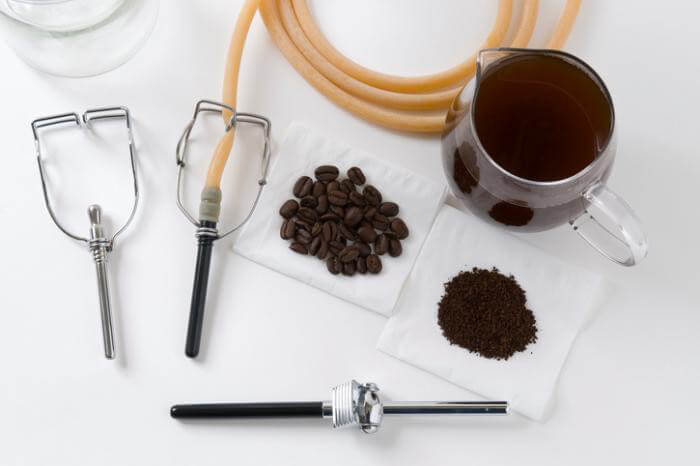
Translation: Your colon is working just fine, but we’ll make you think that normal colonic waste is “toxic” and is poisoning you to death – even though we know that’s not the case (or we actually believe it ourselves).
Reality check: Enemas are an “enema” of the people. Enemas used in so-called “detox” spas are, excuse the pun, full of shit. Unless there is a medically warranted need for colonic irrigation, you don’t need them.
Researchers at Georgetown University School of Medicine evaluated the scientific evidence on colonic cleansing and found that it provided little evidence of benefit. They did, however, note numerous adverse events, including cramping, bloating, vomiting, electrolyte imbalance, renal failure, and even death.
Bottom line: if your colon isn’t broken, don’t fix it. Visit a qualified medical practitioner if you’re experiencing symptoms you think are related to your colon.
Thermo, burn, shred pills
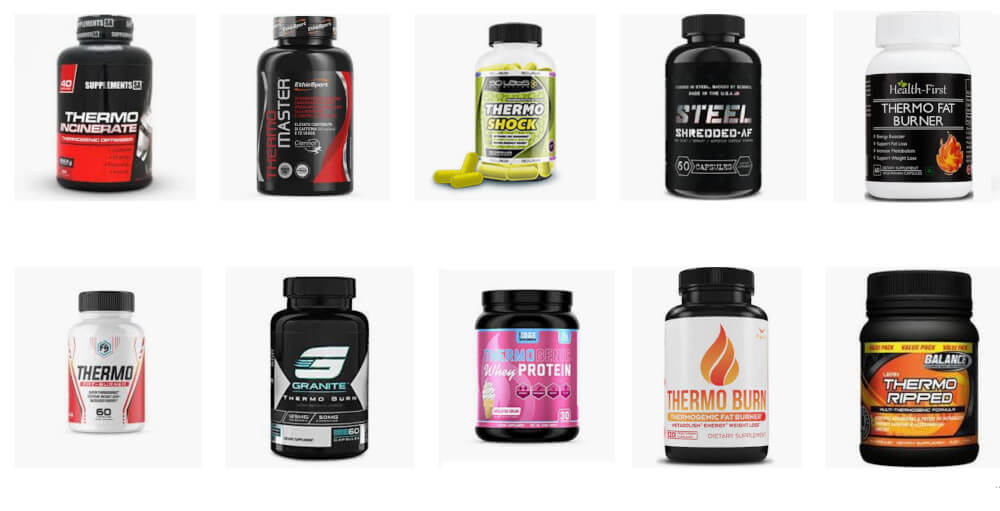
Translation: Wanna burn more calories kids? Set yourself on fire!
Reality check: All these so-called “thermo” or “shred” supplements and drinks that claim to get you “ripped” all tend to have one thing in common: they contain stimulants such as caffeine.
Research does show caffeine can modestly enhance fat oxidation and boost metabolism but not as much as you might think. While a study result might be “statistically significant,” this is not necessarily the same thing as clinically (or practically) significant. Under strictly controlled experimental conditions, the increase in fat oxidation and calorie burn is quite small. So in free-living adults (outside a lab setting), an increase in energy expenditure can be offset by variations in a person’s daily diet and exercise habits. Humans are also known to develop a tolerance to caffeine which can blunt its effects over time.
Fat blasting formula
Translation: We’ll claim it’s a “proprietary blend” of ingredients that are “research-based,” but it’s really just the same old hackneyed ingredients as all the other “fat burner” supplements out there. We’ll give it an over-the-top name to get people’s attention so they’ll think it’s different and buy it.
Reality check: Just as with the parade of “thermo” or “shred” products out there, many of these “fat blaster” supplements make you burn maybe an extra 10 calories, but not enough to have any clinically significant effect. This is where you need to be extra careful when interpreting health marketing claims. The research may very well show that lab rats burnt a few extra calories and, while technically “true,” these results may not apply to free-living humans or be meaningfully significant.
Contributed by Joe Cannon, MS, CSCS, Strength and Conditioning Specialist
Functional training
Translation: Everyone is selling an exercise program or method of training, so let’s make ours stand out by promising better results. Saying something is more “functional” means we can promise our clients will get better results for the same training. We can also use exercises that are different to everyone else and be fancy and/or more complicated/interesting.
Reality check: “The term “functional training” is pretty rare in the exercise science world, because what’s the point of doing any exercise that doesn’t improve your “function?” The real issue is what the function you have in mind is and how well the exercise program leads to improvements in this function. This is also why there’s such varying interpretations of this term. Does functional need to be body weight training? It could, but if you’re training for something that exposes you to high forces (a very explosive sport like sprinting, or a contact sport), this will be insufficient. Does it need to include unstable surfaces? It could, if unstable surfaces are a major part of the function you have in mind. I’ve seen some great unstable training done with snowboarders and surfers, for example, but this won’t suit the rest of us. Does functional training need to include heavy free weights? It probably will, but if you lack the ability to control a heavy weight well, then we need to try something different. Maybe even a machine (shock!) The fact is, when we design a workout we can choose an exercise, a weight, a repetition range, and a speed of movement that will provide the stimulus we are looking for. In that respect, every well designed program should be functional. A poorly designed program will not be.”
Contributed by Dan Jolley, PhD, Strength and Conditioning Specialist
Toning
Translation: “Weight loss” and “fat loss” are too difficult. Here, let’s call it “toning” instead. Toning is much more ambiguous and difficult to measure. Plus it sounds much less menacing, so we can package it up and use it to sell fad diets and infomercial ab and butt sculpting gadgets.
Reality check: Beneath your skin you have a layer of fat which sits in different areas of your body depending on your gender and genetic factors. The muscle lies under that layer of fat. If you reduce the thickness of the fat layer, you will see better muscle definition. You can train the muscle all you want, but if that layer of fat is still there, you won’t see any visible change. With resistance training, you can make the muscle bigger, produce more force, and make it sustain contractions for longer. But the bottom line is that no matter how strong or fit the muscle itself is, you still need to reduce the fat between the muscle and skin to get a “toning” effect. So if you think an infomercial ab or butt blaster will “tone” you up, you’re going to be disappointed with the results unless you help it along with a healthy diet
Contributed by Dan Jolley, PhD, Strength and Conditioning Specialist
Core

Translation: This is fun, because we can use the term “core” to suck in the functional people, and the toning people! We can throw in some crunches for people that want a flatter stomach, or some fancy rotational exercises who think this will improve their sports performance.
Reality check: The idea of “spot reduction” has been done to death. It’s been around for about 130 years, and we’ve known it’s nonsense since the 1970s. It pops up again and again, though, because we all love a shortcut. But there is not shortcut, except for the age-old wisdom of eat well, not too much, and move often. Other people talk about core training as a way of improving our posture or performance, but this is pretty controversial. The other factors influencing posture have far more impact than the strength of our abdominal wall (30-40 kg of abdominal body fat has a pretty noticeable impact on posture!) In fact, one of the most experienced strength and conditioning coaches I’ve had the privilege of meeting once said the best core exercise he knows is a heavy squat. Why? Because in a good position you have to brace your core to control and lift the weight. It’s impossible to squat heavy without doing this. Program the right exercise, for the right person, and the core will work as required. Isolated “core training” won’t make much difference to most people, under ordinary circumstances.
Contributed by Dan Jolley, PhD, Strength and Conditioning Specialist
Expert, guru

Translation: I managed to make myself [insert adjective, i.e., massive/tiny/ripped], so it can’t be too hard to help other people do the same, right? Sure I lack qualifications or an understanding of the principles of the training I am recommending. And my experience is mostly limited to myself, but I have no reason to think that anyone will be different to me. And I look great, so I can charge more!
Reality check: “Genuine expertise is complicated and takes a long time to develop. And it often relies on learning and feedback from others who are highly qualified. A social media health “expert” will often lack this feedback, so may be blissfully unaware of their shortcomings (something popularly known as the Dunning-Kruger Effect). An expert is also more than the sum of a bunch of facts. Knowledge of exercise is important though, and formal recognition of this with qualifications is useful quality control. A genuine expert also knows how to apply this knowledge in a range of situations, like for people with different levels of ability or underlying disease states. They have highly developed decision-making skills, seek out feedback (even negative feedback) from other professionals, can communicate their knowledge, and have a clear understanding of the boundaries of their expertise. One program, or one diet, never fits all. We can safely ignore anyone selling one system, or one approach, to suit everyone. No matter how good they look.”
Contributed by Dan Jolley, PhD, Strength and Conditioning Specialist

Great article. Glad to see Molecular Hydrogen escaped the list.
Cheers Malcolm, If I listed everything, the article would be a 600 page book!
@malcolm dowling, thank FSM for that!
Wow thank you for a comprehensive treatment of the subject matter of how we get sucked into believing misleading advertising!
good job
Bill,
This is a great post. I will be sharing this with as many people as I can possibly get it to. We need to cleans this industry of all it’s toxic people so we can truly help those who want the help and steer them away from the “Snake Oil” salesman who have dominated the industry for too long.
Cheers Dwayne, Thanks for the kind words and for helping to clean up the industry against snake oil-pushing marketers!
Favorite meaningless phrase: “supports immune system” or just the word “supports”. Often used in supplements
I was a 50+ Year registered pharmacist
Hi Ron,
Yep, then you can certainly appreciate the word salad and nuance that health marketers use to dupe people into buying things that “may” or may not do anything at all.
One of the best hopelessly gullible comments I saw on social media was in response to someone suffering from a severe bout of hayfever. The advice offered was to eat honey as this “boosts the immune system”.
*facepalm*
Yeah man, there’s no limit to the sheer volume of foolish advice offered on the internet. Social media is definitely out of control and there’s no way to put the genie back into the bottle!
Love this! Think you may have overgeneralized IIFYM a bit. Part of what it allows is flexibility with the macros, based on a person’s preference (for carbs or fat, for instance). And tracking fiber to make sure you get enough each day can be helpful since we know there are scientific benefits to fiber (which most people don’t get enough of). Flexible dieting actually helps raise awareness of the calorie and macro composition of foods, without excessive restriction. Although there will always be people who take it to extremes and don’t treat IIFYM like the rough estimate that it is.
Yep, the real issue is when people go overboard and obsess about macronutrient ratios to the point that it creates food anxieties. Certainly there needs to be awareness but without obsession.
A great rundown of dubious marketing claims! I shared this on our facebook Skeptic Friends Network page. Thanks!
Thanks David. Keep up the good fight for science and rational thinking!
One of the others that appears over and over again that I despise is “support”. Adrenal support, immune support, liver support. I think that’s another one of those words that has absolutely no meaning to science, medicine or the regulatory bodies so marketers can use it without risking FDA censure for making unvalidated claims…..
Hi Doug, actually that one is on the list down around number 28. Cheers
This is so awesome. Thank you.
I do take issue with a few of the absolutes – medical research has indeed shown intestinal hyperpermiability to be real condition associated with numerous chronic illnesses (but you can’t fix ‘leaky gut’ with a magic pill,) and adrenal insufficiency can be a legitimate endocrine pathology, etc.
But those nitpicks aside- this sums up SO much, SO well. Thank you!
Hi Lauren,
Thanks for leaving a comment. While I agree that there can be legitimate medical issues in some people, these should be considered on a case by case basis. The problem I have with hokey diagnoses is when they are promoted as if they’re common in most people and – not so surprisingly – the people promoting these ideas are often selling their supplements to “cure” the said “illness.” In the decades that I’ve been investigating and reporting on health quackery and misinformation, this is a common ploy that, sadly, has only gained steam in the age of the internet. And the average person with little to no understanding of basic science will be swept up in this fear- and hypochondria-based marketing.
Thanks again for your comment. Keep up the good fight for responsible health information!
What do you know about Dr. Terry Wahls? She promotes an eating program for dealing with ms, which I have. Thanks.
Hi Greg,
Thanks for your comment. I’d recommend working closely with your own doctor and a registered dietitian who will be most familiar with your medical history and can make specific recommendations tailored to you. With that in mind, you might wish to discuss her diet with your dietitian to see if it’s appropriate for your situation. My only reservation is that when I look at a lot of her promotional material, I see a number of “woo” claims that tend to reek of BS (i.e., “toxins,” detoxify,” “holistic,” and other related woo terminology). I am admittedly skeptical, having seen so much of this over the years, but to be as diplomatic as possible, I’d recommend working closely with your own medical management team to ensure you’re getting the best available information for your specific situation.
Kind regards,
Bill
ha ha – butt blaster fixes everything!!!
INFLAMMATION – did i go through that whole list and not see that?
where is the test for that?
how does anyone know that? total BS.